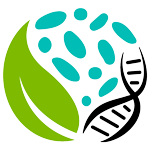Computational ranking of yerba mate small molecules based on their predicted contribution to antibacterial activity against methicillin-resistant Staphylococcus aureus.
Caroline S. Rempe, Kellie P. Burris, Hannah L. woo, Benjamin Goodrich, Denise Koessler Gosnell, Timothy J. Tschaplinski, and C. Neal Stewart, Jr.
8 May 2015, PLoS ONE 10(5): e0123925; doi: 10.1371/journal.pone.0123925
Abstract
The aqueous extract of yerba mate, a South American tea beverage made from Ilex paraguariensis leaves, has demonstrated bactericidal and inhibitory activity against bacterialpathogens, including methicillin-resistant Staphylococcus aureus (MRSA). The gas chromatography-mass spectrometry (GC-MS) analysis of two unique fractions of yerba mate aqueous extract revealed 8 identifiable small molecules in those fractions with antimicrobial activity. For a more comprehensive analysis, a data analysis pipeline was assembled to prioritize compounds for antimicrobial testing against both MRSA and methicillin-sensitive S. aureus using forty-two unique fractions of the tea extract that were generated in duplicate, assayed for activity, and analyzed with GC-MS. As validation of our automated analysis, we checked our predicted active compounds for activity in literature references and used authentic standards to test for antimicrobial activity. 3,4-dihydroxybenzaldehyde showed the most antibacterial activity against MRSA at low concentrations in our bioassays. In addition, quinic acid and quercetin were identified using random forests analysis and 5-hydroxy pipecolic acid was identified using linear discriminant analysis. We also generated a ranked list of unidentified compounds that may contribute to the antimicrobial activity of yerba mate against MRSA. Here we utilized GC-MS data to implement an automated analysis that resulted in a ranked list of compounds that likely contribute to the antimicrobial activity of aqueous yerba mate extract against MRSA.
Citation
Rempe CS, Burris KP, Woo HL, Goodrich B, Gosnell DK, Tschaplinski TJ, et al. (2015). Computational Ranking of Yerba Mate Small Molecules Based on Their Predicted Contribution to Antibacterial Activity against Methicillin-Resistant Staphylococcus aureus. PLoS ONE 10(5): e0123925. doi:10.1371/journal.pone.0123925
Outside Links
https://journals.plos.org/plosone/article?id=10.1371/journal.pone.0123925
Data Availability Statement
Data has been deposited with the MetaboLights Database, repository ID MTBLS170. It is accessible at:
http://www.ebi.ac.uk/metabolights/MTBLS170

